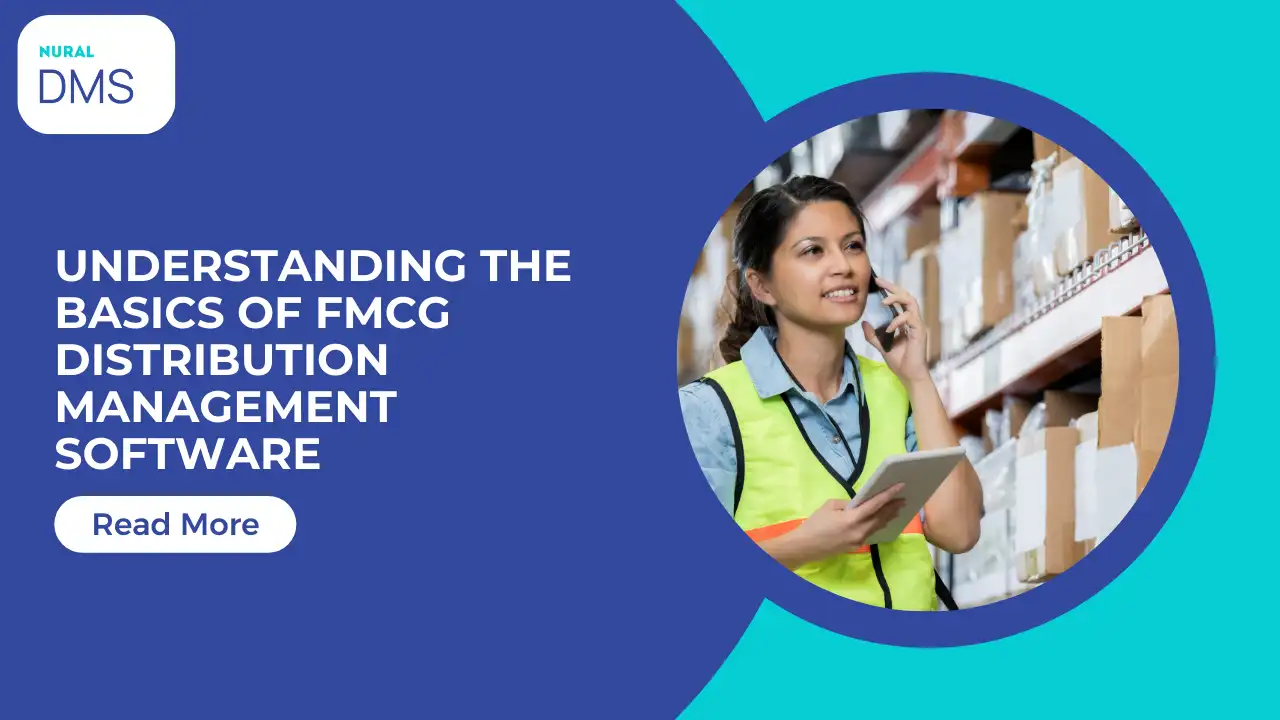
- Understanding the Basics of FMCG Distribution Management Software
- Things to consider while selecting Distribution Management Software for your FMCG Company
- Advantages of FMCG Distributor Management Software
Key Takeaways:
- Examine the software’s interoperability and integration possibilities with your present systems.
- Outline your precise needs and objectives for DMS. You must select a DMS that supports cloud integration
- When selecting a robust FMCG distribution management software, keep simplicity of deployment and usage in mind.
Choosing the proper distribution management software is critical for the success of your FMCG company in this highly competitive business climate. Whether you work in manufacturing, retail, e-commerce, or logistics, an effective and streamlined distribution process is critical to meeting consumer requests, optimizing inventory levels, and increasing profitability.
Things to consider while selecting Distribution Management Software for your FMCG Company
Distribution management software is a vital tool that has the potential to alter how firms manage their supply chain operations. It equips businesses with the tools to manage and trace the flow of goods from manufacturing to the end consumer, assuring on-time delivery, precise inventory management, and increased customer satisfaction.
There are numerous significant elements to consider while selecting DMS for your FMCG organization. Here are some helpful hints to assist you in successfully choosing a right DMS.
- Determine your company’s requirements
Recognize and assess the particular distribution management difficulties and pain points you encounter. Assess inventory management, order precision, delivery delays, and supply chain visibility. Consider manual vs. automated procedures, technical limits, and bottlenecks while evaluating your present processes and systems.
- Define the requirements and goals clearly
Outline your precise needs and objectives for DMS. You must consider scalability, connection with ERP or CRM, reporting, and software usability. This will assist you in prioritizing features and functions that are relevant to your company objectives.
- Integration and implementation
Gain a thorough grasp of the DMS’s installation process. Consider the timing, necessary resources, and any interruptions to your current activities. Assess the software vendor’s training and support services, including their support team’s availability and response. Examine the software’s interoperability and integration possibilities with your present systems.
- Future growth and scalability
Consider the DMS’s scalability. Can it keep up with rising transaction volumes, expanded product lines, and increasing client expectations? Examine the roadmap and future upgrades of the software provider to assess their commitment to continual improvement and innovation. Your software should adapt to your evolving company demands and allow you to respond rapidly to market dynamics and future prospects.
- Evaluate your supplier and retail landscape
A DMS must address retail landscape visibility issues and DSR activity visibility. If your company’s distributors are scattered across the state or country, you must select a DMS that supports cloud integration.
- User-friendly
DMS must be simple to use for distributors. When selecting a robust FMCG distribution management software, keep simplicity of deployment and usage in mind. A DMS program that is cloud-based or mobile is effective.
- Assess adoption issues
Integrating DMS for many brands, distributors stubbornly using data input procedures, and needing more resources should be considered when picking a DMS for your firm. You should also investigate the DMS features to ensure that it is compatible with your present distributor ecosystem.
- Verify testimonials and free trials
Proper product demos let you observe the system in operation and ensure brand-specific fitting. If you’ve finally settled on a FMCG DMS program, wait to buy it until you’ve read some good reviews or case studies about it online.
Advantages of FMCG Distributor Management Software
FMCG distributor management software lets organizations focus on company growth rather than supply chain management. An efficient DMS assists company in decision-making by giving insights into inventory, secondary sales, distributor performance, response to offers and schemes, etc. Nural DMS stands out as an excellent solution. Their broad toolset handles unique distribution difficulties. Additionally, it provides a smooth transition to your business operations with its user-friendly interface and simple setup procedure. Realize your full distribution potential with its dependable, feature-rich DMS that streamlines processes and boosts business!
We’d Love To Hear From You!
Drive Business Growth with Nuraltech
Empower your sales, distribution & analytics with data-driven SaaS solutions.
Schedule a Demo



